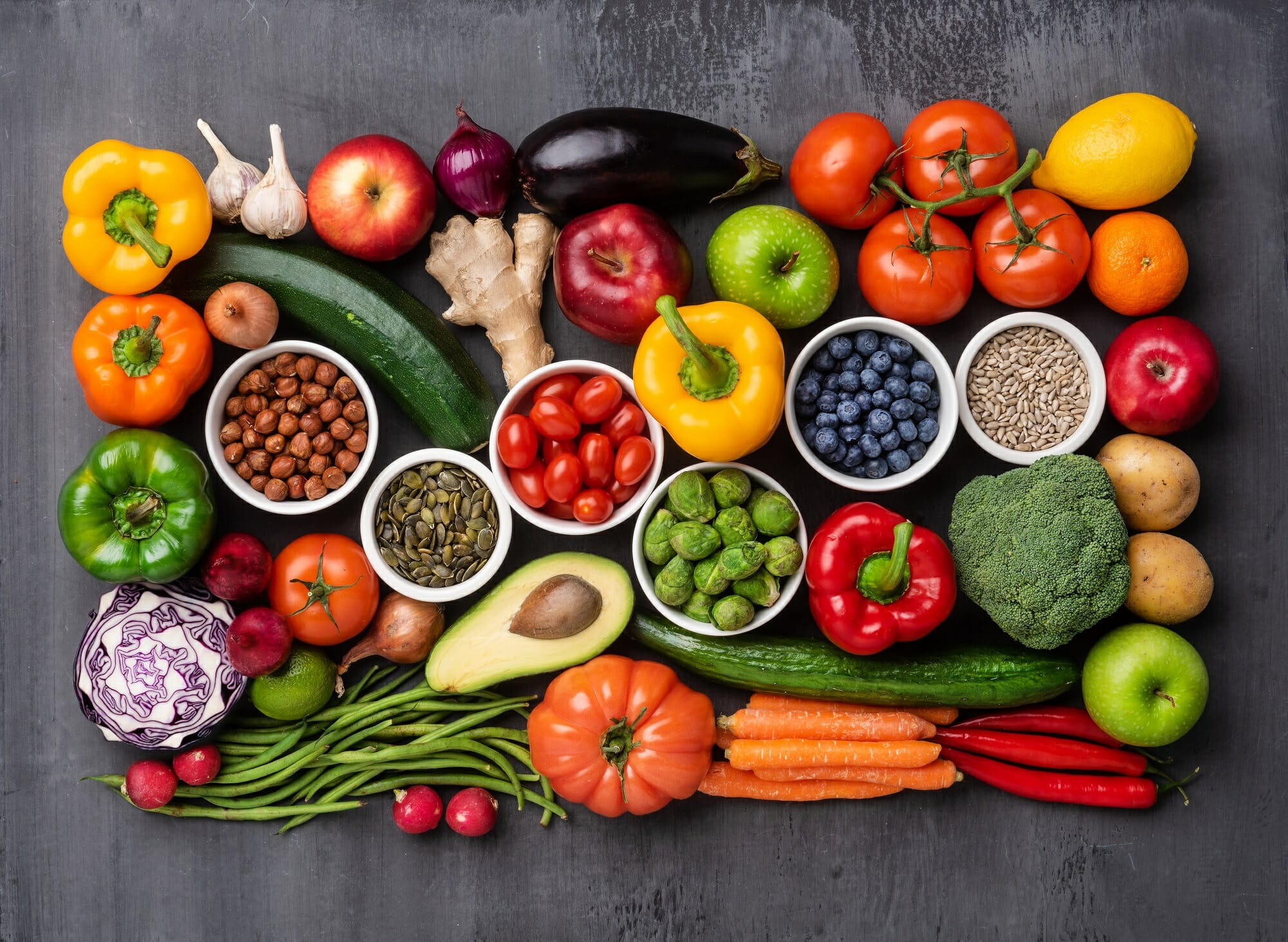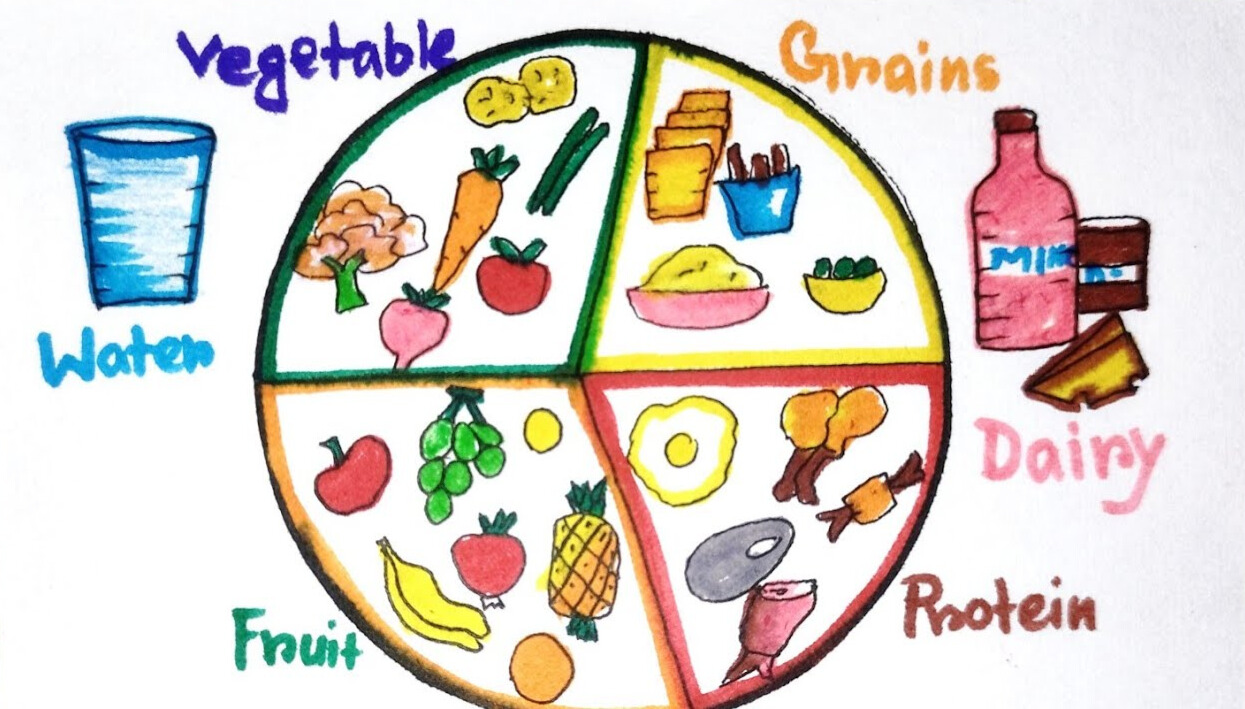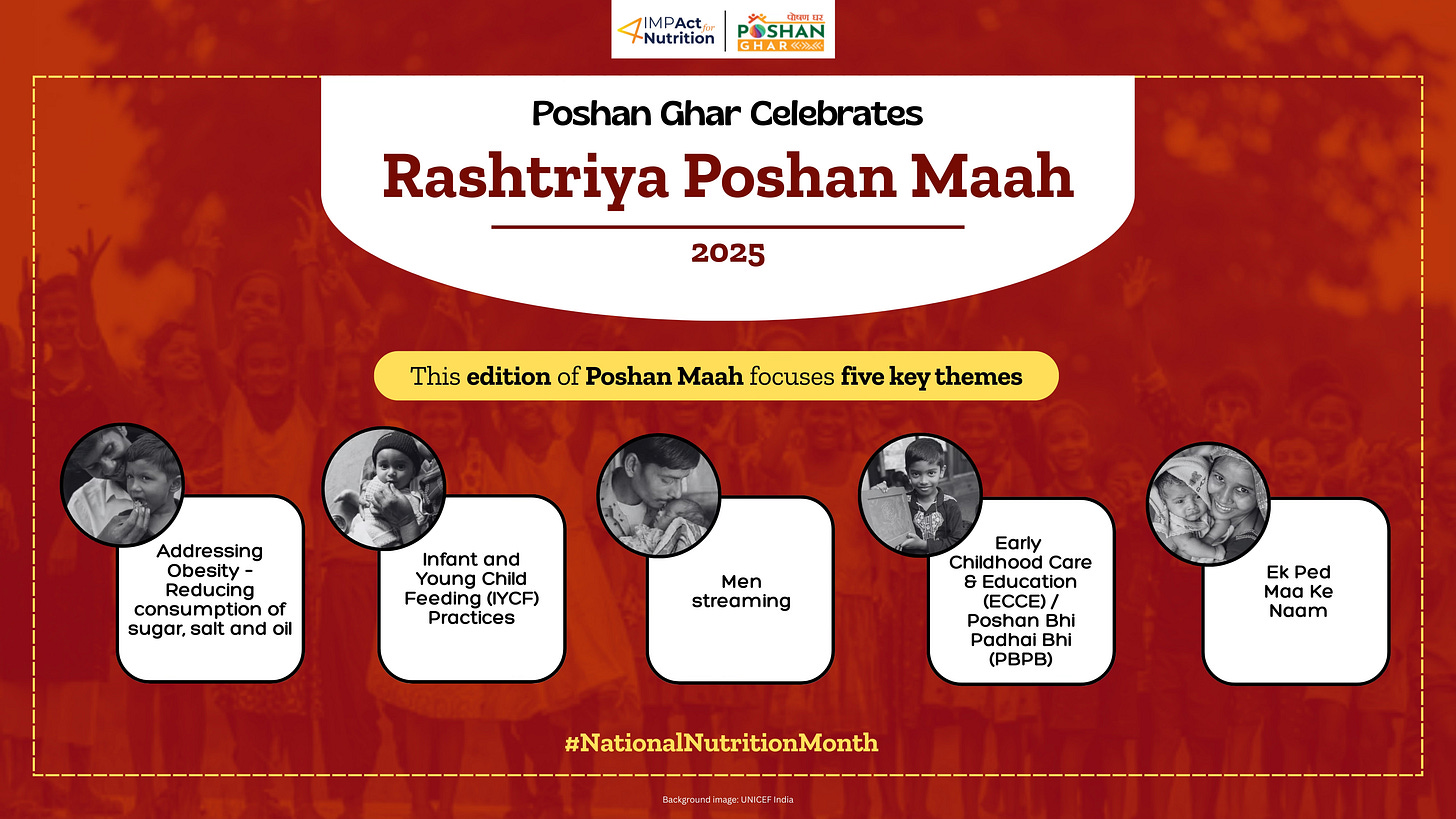Something exciting happened on September 17th that could change how millions of Indian families think about nutrition. Prime Minister Narendra Modi launched a new nationwide campaign, ‘Swasth Nari, Sashakt Parivar Abhiyaan’, along with the 8th Poshan Maah, and trust us, this isn’t just another government announcement that’ll get lost in the news cycle.
Here’s what makes this different.
More than one lakh health camps will be organised, making this the largest ever health outreach for women and children across the country. That’s 100,000 camps! To put that in perspective, it’s like setting up a health camp in every neighborhood, every village, every corner where families need help the most.
So What’s Really Going On During Poshan Maah?
Think of Poshan Maah as India’s annual month-long nutrition festival. September marks ‘Poshan Maah 2024’, a nationwide celebration dedicated to promoting nutrition awareness and driving action towards building a healthier India. But unlike regular festivals where we just celebrate, this one actually rolls up its sleeves and gets to work.
The word “Poshan” means nutrition in Hindi, and this campaign has been running since 2018. Each September, the entire country comes together to tackle one of our biggest challenges: making sure everyone gets proper nutrition, especially kids, pregnant women, and new mothers.
Why September 17th Was Special

Modi chose his birthday to launch not just the 8th Poshan Maah, but also something brand new – the ‘Swasth Nari, Sashakt Parivar Abhiyaan’. The name might sound fancy, but it simply translates to “Healthy Women, Strong Families Campaign.”
This isn’t coincidence. When you fix nutrition problems for women and children, you’re basically fixing the foundation of entire families.
What Actually Happens During Poshan Maah?
Here’s where it gets interesting. Activities include Anaemia camps, Plantation Drive, Poshan walk/rallies, cycle rally, Yoga sessions, Gram Sabha meetings, Poshan Baithak, workshops/webinars, various competitions. Basically, every community gets involved in some way or another.
Let’s break this down:
Health Camps Everywhere: Imagine walking to your local park and finding doctors checking kids for anemia, measuring their height and weight, and giving free health advice to moms. That’s happening in thousands of places right now.
Community Rallies: People aren’t just sitting in meetings. They’re walking, cycling, and spreading awareness about nutrition like it’s the most important thing ever – which, honestly, it kind of is.
Educational Sessions: Local health workers are teaching families about things like when to start giving solid food to babies, which vegetables pack the most nutrition punch, and why that daily glass of milk actually matters.
The Real Problems Poshan Maah Is Tackling
This year, in its 7th phase, the Poshan Maah campaign focuses on critical themes such as anaemia prevention, growth monitoring, effective service delivery through good governance and technology, “Poshan Bhi Padhai Bhi,” and supplementary nutrition.
Let’s talk about anemia for a second. It’s basically when your blood doesn’t have enough healthy red blood cells, and it makes people tired, weak, and unable to concentrate. In India, tons of women and children have this problem, but it’s totally fixable with the right food and iron supplements.
The “Poshan Bhi Padhai Bhi” theme is clever – it means “Nutrition and Education Both.” Because what’s the point of sending kids to school if they’re too hungry or malnourished to focus?
Why This Year’s Poshan Maah Feels Different
A significant theme of Poshan Maah 2024 is complementary feeding. This aspect of infant nutrition becomes crucial around the six-month mark when breast milk alone cannot meet an infant’s growing nutritional needs.
This is huge because many families don’t know when or how to start giving babies their first real food. Get this wrong, and kids can face nutrition problems that affect them for years.
The campaign is teaching parents exactly what to feed 6-month-old babies, how to make nutritious food at home without spending a fortune, and when to worry enough to visit a doctor.
The Technology Angle

Here’s something cool: the government isn’t just relying on old-school methods. The Ministry of Women and Child Development received the National Award for e-Governance 2024 (Gold) for the Poshan Tracker initiative.
The Poshan Tracker is basically like a health app for communities. Health workers can track which kids are growing properly, which families need extra help, and where the nutrition programs are working best. It’s like having a GPS for nutrition – you always know where you are and where you need to go.
What Makes This Campaign Work?
Under Mission Saksham Anganwadi and Poshan 2.0, Behavioural change, at individual and community level is an important component to achieve the desired goal of Suposhit Bharat.
“Suposhit Bharat” means “Well-Nourished India,” and the key word here is “behavioral change.” The government realizes you can’t just hand out supplements and call it a day. You need to change how people think about food, nutrition, and health.
This means convincing grandmothers that modern nutrition advice isn’t wrong, helping working mothers find time to prepare healthy meals, and teaching teenagers that what they eat now affects them for life.
Real Impact, Real Stories
The month will feature various activities, including health check-ups, community outreach programs, and the distribution of nutritional supplements, all aimed at tackling malnutrition and promoting healthier practices among children, pregnant women, and lactating mothers.
Think about a pregnant woman in a village who’s never been told that she needs extra iron and folic acid. Or a new mother who doesn’t know that exclusive breastfeeding for the first six months gives her baby the best possible start in life. Poshan Maah reaches these families directly.
The Bigger Picture
When PM Modi launched this 8th edition of Poshan Maah alongside the new women’s health campaign, he wasn’t just starting another government program. He was acknowledging that nutrition isn’t just about food – it’s about the future of the country.
Every child who gets proper nutrition becomes a stronger student, a healthier adult, and eventually a more productive member of society. Every woman who stays healthy during pregnancy gives her baby a better chance at life. Every family that learns about nutrition passes that knowledge to the next generation.
What Happens After September?
While Poshan Maah officially runs through September, the impact doesn’t just stop on October 1st. The health camps continue, the education keeps spreading, and the tracking systems keep monitoring progress throughout the year.
The beauty of this initiative is that it’s designed to create lasting change, not just temporary awareness. Families who learn about nutrition during Poshan Maah are supposed to carry those habits forward for months and years.
That’s the real test of whether this 8th Poshan Maah will be different from the previous seven – does it create permanent change, or does the excitement fade when the cameras leave?
Only time will tell, but with 100,000 health camps and millions of families participating, the odds look pretty good for building that “Suposhit Bharat” the government keeps talking about.
The best part? This isn’t just about government programs. It’s about communities taking charge of their own health, one family at a time.
